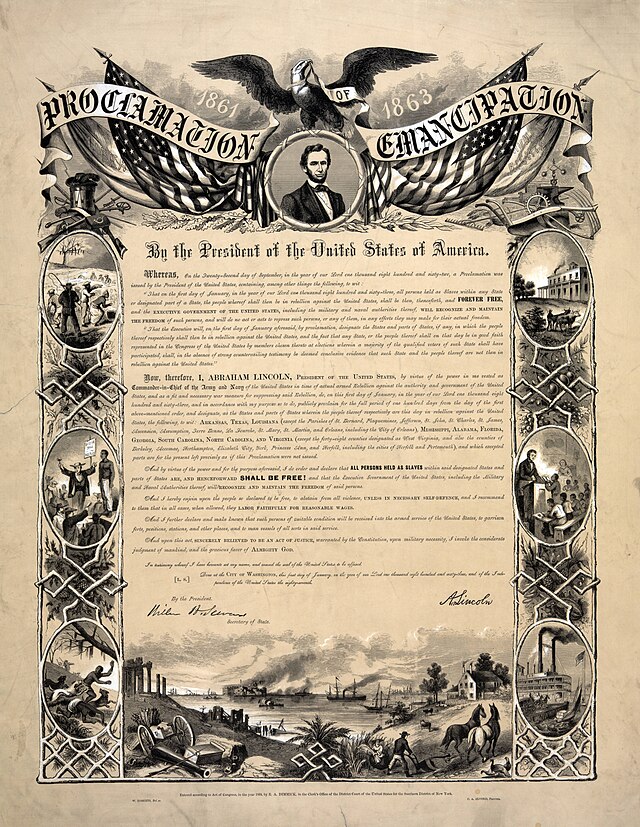The road to emancipation

Manisha Sinha has a good piece for your Juneteenth reading:
African Americans had demanded freedom from bondage as early as the American Revolution, and in the 30 years before the Civil War a strong interracial movement had called for the immediate abolition of slavery and for Black rights. Lincoln himself came under enormous pressure from abolitionists and radicals within his own party during the first two years of the war to act against slavery. But when it comes to the contemporary history of emancipation, the influence of abolitionists has been somewhat undervalued.
Black and white abolitionists, as both supporters and critics of the president, played a crucial part in leading the movement for emancipation. Abolitionists enjoyed unprecedented access to the White House during Lincoln’s presidency. Lincoln’s famous ability to listen to all sides of the story may not have served abolitionists well when it came to border state slaveholders and Northern conservatives, but it did bode well for their own role as the staunchest supporters of emancipation. Not only did Black abolitionists strenuously advocate the cause of the slave, they also made the president give up on his long-cherished plan of colonizing free Blacks outside the country and to contemplate civil and political rights including suffrage for African Americans. Abolitionist influence on Lincoln must be gauged in terms of ideology and philosophy. In their view, the Civil War was a revolutionary struggle against slavery— not, as Lincoln argued early on, just a war for the Union, but an abolition war, a position that he came to accept in the last years of the war.
Lincoln, of course, was not an empty receptacle into which others poured their views or a man who had no prior convictions. We know that Lincoln held at least two beliefs on slavery and race on the eve of becoming the president of the United States. He abhorred slavery as a moral and political blot on the American republic even though he did not advocate political equality for Black people. Like most 19th-century Americans who revered the Union and the Constitution, Lincoln did not sympathize with the abolitionist goal of immediate emancipation. But in viewing slavery as an unmitigated evil, he already shared important ground with abolitionists. Lincoln, a moderate, anti-slavery Republican, was committed only to the non-extension of slavery, the lowest common denominator in anti-slavery politics, with a rather nebulous hope in its “ultimate extinction.” But it was a position that he adhered to with great tenacity. Without these prior anti-slavery convictions, it is difficult to imagine how Lincoln would have come to accept the logic of emancipation during the Civil War.
Lincoln’s position on black rights on the eve of the Civil War put him behind many abolitionists and radical Republicans and led him to flirt continuously with the idea of colonization, but it put him far ahead of most hardened racists in the North and South who would expunge African Americans from the human family. Ironically, it was Lincoln’s belief in a democratic America that made him an opponent of slavery as well as a believer in the colonization of African Americans because his ideal republic would not accommodate inequality. It was precisely in this area that Black and white abolitionists would exercise their greatest influence on him, pushing him to come to grips with civil and political rights for African Americans and the consequences of emancipation. African American leaders, abolitionists, and radical Republicans, who had long envisioned the establishment of an interracial democracy in the United States, played an indispensable role in pushing the president to accept the logical outcomes of his own views on slavery and democracy: abolition, Black rights, and citizenship.
If you’re looking for some longer-form reading about the aftermath of the Civil War, Sinha’s book about Reconstruction is excellent.
